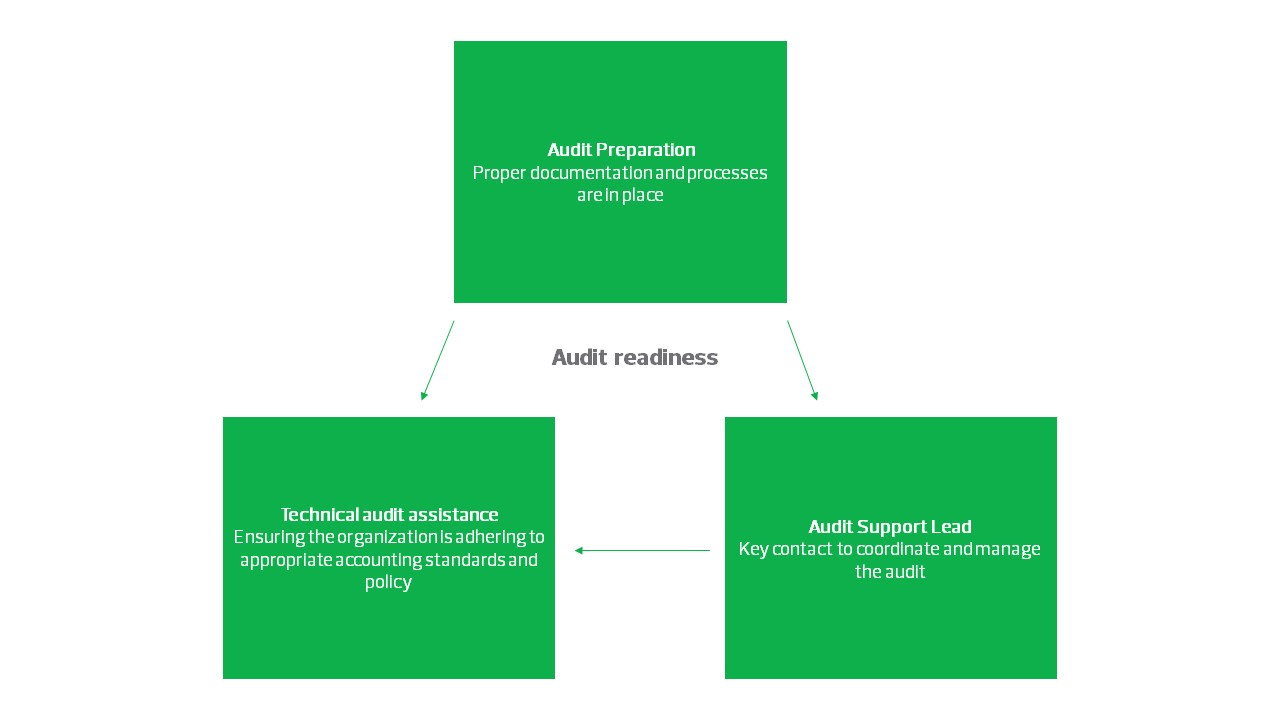Audit readiness is a tool that an auditor uses to ensure an audit runs smoothly and prevents any delays that could occur when the audit commences.
Audit readiness is crucial for any business, as it ensures the company is prepared and ready for any external audit. Without proper audit readiness, a company may face legal consequences or even incur penalties or fines, due to delays in presenting financial statements. A lack of audit readiness could even result in financial misstatement or fraud.
Here are some key reasons why audit readiness is important:
- Compliance: External audits are conducted to ensure that the company meets regulatory and legal requirements. If a company is found non-compliant, it may face penalties or fines.
- Financial statement accuracy: External audits also ensure that financial statements are accurate, reliable and fairly presented. Inaccurate financial statements can lead to errors in decision-making and can damage the organisation's reputation.
- Fraud prevention: Proper audit readiness can help identify and prevent fraud within a business. An effective system of internal controls, strong processes and policies help mitigate risk for financial misstatements, including fraudulent activities.
- Operational efficiency: Proper audit readiness can also improve the efficiency of an organisation's operations. By identifying and correcting problems before they become large and complex, companies can save time and resources.
- Shareholder confidence: Shareholders and other stakeholders rely on accurate financial statements and audit reports to make informed decisions. A company with a track record of reliable financial reporting can inspire confidence in the shareholders and may help attract new investors.

Below are steps that you should take to ensure you’re audit-ready:
Month-End Close
Close your accounts on a regular basis. Having a routine reporting process is both a best practice and an opportunity to identify problems early.
Closing Checklist
A closing checklist should be used throughout the year to ensure all month-end processes are performed and all journal entries are posted. Without a checklist to follow, quarterly and annual entries can be forgotten.
Documentation
Documenting, filing and organising seem like a boring task, but it’s one of the keys to a smooth audit. This will be an advantage when the auditor begins to select samples and requests information.
Internal Controls
Make sure strong internal controls are established, operating and effective.
New Accounting Standards
Be aware of new accounting pronouncements and modifications to existing pronouncements that are continually being introduced. The effective dates should be closely monitored.
Unusual Transactions
If there are questions about unusual transactions in the current year, reach out to the auditors early. This prevents further questions and issues when the audit begins.
Balance Sheet Reconciliations
Reconciliations will pick up any errors that may have occurred and can be adjusted before the audit commences, these include a fixed asset summary, debtors, creditors and bank reconciliations.
Physical Inventory
Companies that will be performing a year-end physical inventory should count, plan carefully and ensure they are done on time before closing the accounts. Try involve the auditor so both the auditor and company can agree on stock quantities. Other important inventory practices are to ensure year-end sales/purchases are correct, relating to the cut-off of shipping and receiving of inventory.
Following these steps will assist your organisation to maintain audit readiness. This is important for ensuring the long-term success and sustainability of the company and promotes a smooth and timely completed audit.
Jason Brown
Supervisor, Johannesburg




